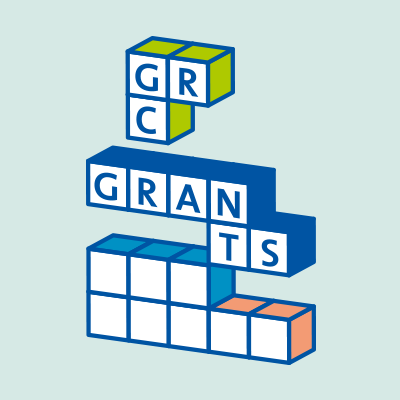Synopsis
FortranCon 2020 is the first International Conference targeting the development for and with the Fortran programming language and will take place on July 2 - 4 in Zurich, Switzerland.
In recent years Fortran has seen a series of new standards, improving the language in regards to object-oriented, parallel and general-purpose programming. This has spurred the development of several new projects written in and for Fortran, helping the Fortran programmers - in particular, the scientific community - to modernize their code and make it more maintainable.
With this conference, we intend to bring together active Fortran project developers from all fields: library and tool developers as well as people using Fortran to develop scientific applications, to share their experience and exchange ideas.
Comments on the Covid-19 situation:
The conference will take place and will be held completely virtually.
Start times:
- on Thursday: 15:00/3pm UTC+2/CEST
- on Friday: 13:00/1pm UTC+2/CEST
Keynote
For the Keynote talk we are happy to welcome Mr. Steve Lionel, convener of the ISO Fortran Standards group, retired Intel employee and to many known as Doctor Fortran.
Conference Structure / Registration / Call for Abstracts
The FortranCon 2020 is organized in two full days with speaker presentations (2. and 3. July) and a half-day workshop (4. July) on a particular Fortran topic with lectures and hands-on sessions. Anyone interested is kindly requested to register for the event, specifying if she/he would like to participate in the conference and/or the tutorial. The registration is free of charge. Please register until June 1st, 2020 June 12th, 2020 (extended deadline). Participants can virtually attend the meeting (due to Covid-19 situation).
A Call-for-Abstract is also open for people who would like to present at the conference. The official language is English. We have 2 tracks: Selected Presentations (25 + 5 minutes discussion) and Junior Presentations (15 + 5 minutes discussion). The Junior presentations are principally intended for Junior researchers and will be directly decided on by the Local Committee while the Selected Presentations will be reviewed by a Scientific Committee.
The submission must consist of a title (max 10 words) and an abstract (max 200 words). Furthermore, it is required to specify if you apply for a 15 or 25 minutes presentation. Note that juniors have the priority for the 15 minutes slots. You should submit a talk about anything you think is worth sharing with the Fortran Community. However, we are happy to host talks on other topics that can inspire us. Speakers will be requested to describe their experience, the implemented techniques, and the eventual new developments.
Unless explicitly requested by the speaker, all presentations will be recorded and made available through SWITCHtube. If required, presentations can also be given remotely. Please leave a note during the abstract submission or contact the organizers if you want/have to give the presentation remotely.
The Scientific Committee members advise on the selection of the selected presentations by voting each presentation. Each vote is between 1 – 5 points per talk. Members who are also submitting for a talk will not be able to vote on their own presentation. Furthermore, a member will not be able to vote if there is a possibility of a conflict. Based on this advice, the final decision is made by the Local Committee members once the voting deadline has passed (usually 15 days after the deadline of submission). There will be multiple calls for selected presentations (see deadlines), up to the fulfillment of the slots (14 presentations). Junior presentations are only selected by the Local Committee members following the criteria of being related to Fortran and based on the first-come, first-served basis up to the fulfillment of the junior slots (6 presentations). The decision of acceptance of the junior presentations is sent about 15 days after the submission, with the final deadline for submission on June 1st, 2020 (see deadlines).
The last half-day is devoted to a tutorial on a selected Fortran topic. Registered participants will be presented with a set of topics from which they can choose during the registration. The top selected topic will be presented in the tutorial. Example of topics are:
- New Fortran 2003/2008 features (including Object-Oriented) and outlook to the new standard 2018
- Best practices for Fortran
- Fortran parallelization
- Fortran/C/Python interoperability
- Unit-testing frameworks
- Meta-programming tools
- Source-code documentation tools
Pre-requisites for the tutorial are: be active in the development of an application written in Fortran (basic knowledge of Fortran), basic knowledge of C language, familiarity with object-oriented programming concepts and parallel programming techniques.
Deadlines
Registration (free of charge): June 1st, 2020 June 12th, 2020 (extended deadline).
First Selected Call-for-Abstract: May 1st, 2020 (decisions sent by May 15th, 2020).
Second Selected Call-for-Abstract: June 1st, 2020 (decisions sent by June 15th, 2020).
Junior Call-for-Abstract: running deadline up to June 1st, 2020 (decisions sent about 15 days after the submission, based on the first-come, first-served basis up to the fulfilment of the junior slots).
Local Committee Members
Local committee members are in charge of the final selection of the selected and junior presentations, organization of the event, and preparation of the tutorial.
- Tiziano Müller, Dept. of Chemistry, UZH
- Anna Hehn, Dept. of Chemistry, UZH
- Vladimir Rybkin, Dept. of Chemistry, UZH
- Johann Mattiat, Dept. of Chemistry, UZH
Scientific Committee Members
Scientific committee members advice on the selection of the expert presentations.
- Alfio Lazzaro, HPE CH
- Anton Shterenlikht, HPE UK
- Arjen Markus, Deltares NL
- Milan Curcic, University of Miami USA
- Rob Neely, LLNL USA
- Wadud Miah, NAG UK
Funding
We gratefully acknowledge the funding of this event by the UZH Graduate Campus via its GRC Grant, the NCCR MARVEL and the Swiss National Supercomputing Centre.
 |
||
 |
 |
The National Centres of Competence in Research (NCCR) are a research instrument of the Swiss National Science Foundation. |
 |
||
